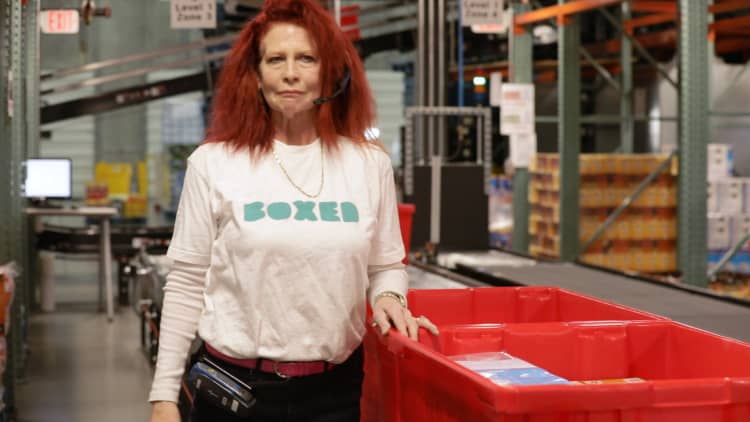Former U.S. President Barack Obama is the latest public figure to raise the idea of free cash handouts from the government.
In his most significant address since leaving office, the 44th President suggested on Tuesday that cash handouts, or universal basic income, ought to be considered as a partial solution to the challenges presented by workforce upheaval created by technology and automation.
“The biggest challenge to workers in countries like mine today is technology,” Obama said as he addressed more than 10,000 people gathered in Johannesburg, South Africa, to honor the 100th anniversary of Nelson Mandela's birth.
“We’re going to have to consider new ways of thinking about these problems, like a universal income, review of our workweek, how we retrain our young people, how we make everybody an entrepreneur at some level. But we’re going to have to worry about economics if we want to get democracy back on track,” Obama said.
Generally, a universal basic income is a cash handout distributed by a government to all of its citizens irrespective of employment status.
Obama said the rapid pace of adoption of artificial intelligence technology is going to make it harder to ensure every individual has a good job, and as a result, leaders will have to be creative in ensuring everyone in a society is able to afford to live.
The rise of automation is expected to have a dramatic impact on the global job market. A December 2017 study from the McKinsey Global Institute found that by 2030, 75 million workers around the globe will need to switch careers due to automation and 400 million individuals could be potentially displaced and need to find new jobs. If automation is adopted by employers at a faster rate, those numbers could climb even higher.
That’s not to say that all jobs will go away, however. Less than 5 percent of jobs will be fully automated, while the majority of jobs will only see about one-third of their tasks become automated, according to McKinsey estimates based on an analysis of 46 countries that includes 90 percent of global gross domestic product and a mid-level pace of adoption of automation.
But even though money is necessary, it's not sufficient to provide human beings a sense of satisfaction, Obama cautioned. As more and more tasks and services become automated with the rise of artificial intelligence, "that’s going to make the job of giving everybody work that is meaningful tougher, and we’re going to have to be more imaginative, and the pace of change is going to require us to do more fundamental re-imagining of our social and political arrangements, to protect the economic security and the dignity that comes with a job.”
“It’s not just money that a job provides; it provides dignity and structure and a sense of place and a sense of purpose,” the former president added.
Former Vice President Joe Biden made similar remarks in March when he expressed his opposition to the idea of universal basic income by noting that his father used to tell him "'a job is about a lot more than a paycheck. It’s about dignity, it’s about respect.'"
A growing chorus of leaders have weighed in on the subject of universal basic income, with Vermont Senator Bernie Sanders calling it a "very correct idea" to address income inequality in the U.S.
And in recent years, billionaire serial entrepreneur Richard Branson, Facebook CEO Mark Zuckerberg, Tesla and SpaceX billionaire Elon Musk and Y Combinator President Sam Altman have all raised the possibility of government cash handouts.
Earlier this month, former U.S. Labor Secretary Robert B. Reich wrote in a book review in The New York Times that he believes that cash handouts of some form are going to be necessary.
“To the rest of America, a [universal basic income] may seem like a pipe dream, but from my vantage point some form of it seems inevitable,” writes Reich, who oversaw workforce policy when he served as Secretary of Labor under President Bill Clinton.
“A world inhabited only by robots, their billionaire owners and a large and increasingly restive population is the plotline for countless dystopian fantasies, but it’s a reality that appears to be drawing closer,” Reich writes. “If we continue on the path we’re on, we will need to make fundamental choices about how to support human livelihoods and ensure equal participation in our economy and society."
See also:
Ex-Labor Secretary: Some kind of cash handout 'seems inevitable'
Elon Musk: Robots will take your jobs, government will have to pay your wage
Billionaire Richard Branson: America should give out free cash to fix income inequality

Like this story? Subscribe to CNBC Make It on YouTube!


